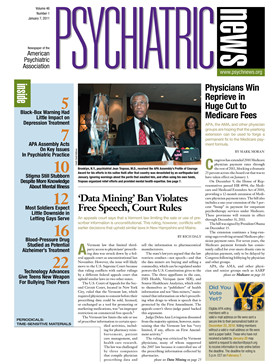Individuals with severe acne, especially acne so severe that treatment with isotretinoin is indicated, appear to be at greater risk of attempting suicide regardless of their suicidal risk before treatment with isotretinoin, according to a study in the November 1, 2010, British Medical Journal.
Isotretinoin, a retinoid medication taken by mouth, is used to treat severe nodular acne after conventional treatments have failed. As the study authors stated, many adverse-drug-reaction and case reports have shown that individuals taking the medication may be at risk for suicidal behavior, psychosis, and depression, but observational studies have yielded conflicting findings.
The researchers also reported that the risk of suicide associated with isotretinoin may be an extra risk, one that could be observed during and up to six months after treatment. However, in patients taking the drug, “the risk of attempted suicide was already rising before treatment,” so the extra risk as a result of treatment with the drug could not be established. Surprisingly, though, in patients with a history of attempted suicide, a smaller proportion made a new suicide attempt than was the case for those who made their first attempt following treatment with the drug.
The large retrospective cohort study was conducted by Anders Sundström, B.A., a pharmacoepidemiologist at the Karolinska Institute's Centre for Pharmacoepidemiology at the Karolinska University Hospital of Stockholm, and colleagues.
The researchers analyzed data from registries of isotretinoin-treated patients who used the medication between 1980 and 1989—a total of 5,756 people who ranged in age from 15 to 49. As part of the analysis, the patients were identified and followed via hospital discharge reports and death registries spanning, in some cases, more than two decades, from 1980 through 2001. Patient records were searched for up to three years prior to the patients' receiving their first prescription for the medication to determine their history of suicide attempts before starting therapy. The researchers also analyzed the patients' records to assess the cumulative risk within the first six months of beginning therapy, and then at yearly intervals following treatment with the medication. In some cases, patients were followed for up to 15 years after completion of one course of isotretinoin therapy.
Patients identified as taking isotretinoin were compared with a similar cohort of patients in the general population. A sample among the general population was identified during the same periods to assess the relative risk of differences, if any, between the two sample populations.
Of the patients who were treated with isotretinoin, 63 percent were male; 91.9 percent of the males and 91.3 percent of the females received one course of isotretinoin therapy. There were 210 attempted suicides by 128 individuals; 24 of the attempts resulted in completed suicides.
The investigators reported that in a comparison of the isotretinoin cohort to the population as a whole, the risk of attempted suicide per person-years was increasing between three years prior to treatment with the drug and one year prior to this treatment. The authors found that the greatest difference between the isotretinoin cohort and the general population was the difference in the rate of first suicide attempts. This risk of attempted suicide among isotretinoin patients was rising slowly three years prior to treatment and continued “through to the actual treatment,” wrote the authors.
Of the 32 patients who had made a first suicide attempt before starting therapy, 12 made subsequent unsuccessful attempts or committed suicide in the follow-up period. In contrast, of 14 patients who made their first suicide attempt during drug therapy or within six months afterward, 10 made a suicide attempt or committed suicide in the follow-up period.
The authors concluded that when comparing isotretinoin-treated patients' first and subsequent suicide attempts, those making an attempt prior to starting therapy did not have their suicidal behavior reinforced prior to treatment with the drug.
In an interview with Psychiatric News, David Fassler, M.D., a clinical professor of psychiatry at the University of Vermont College of Medicine and APA treasurer, stated that the study “underscores the complexity of the relationship between severe acne, treatment with isotretinoin, and suicidal behavior.”
He continued, “The authors demonstrated that people with severe acne are at increased risk of attempted suicide leading to hospitalization even prior to treatment with isotretinoin. . . . Interestingly, patients with a history of suicide attempts before treatment were actually less likely to have a subsequent attempt in conjunction with or following treatment.”
Fassler pointed out that “there were numerous methodological limitations inherent” in the study, some of which were discussed by the study authors. “For example, there are no data on the patients' response to treatment with isotretinoin,” he said. “Were those with a positive response less likely to attempt suicide?”
Additionally, “the paper provides no information on concomitant treatment for depression and the impact, if any, on the risk of attempted suicide. Nonetheless, the findings are both interesting and provocative.”
He agreed with the authors that “a history of depression should not be an absolute contraindication to treatment with isotretinoin and that physicians should monitor patients with severe acne for suicidal ideation and/or behavior before, during, and after treatment.”
The study was funded by the Swedish Research Council.
